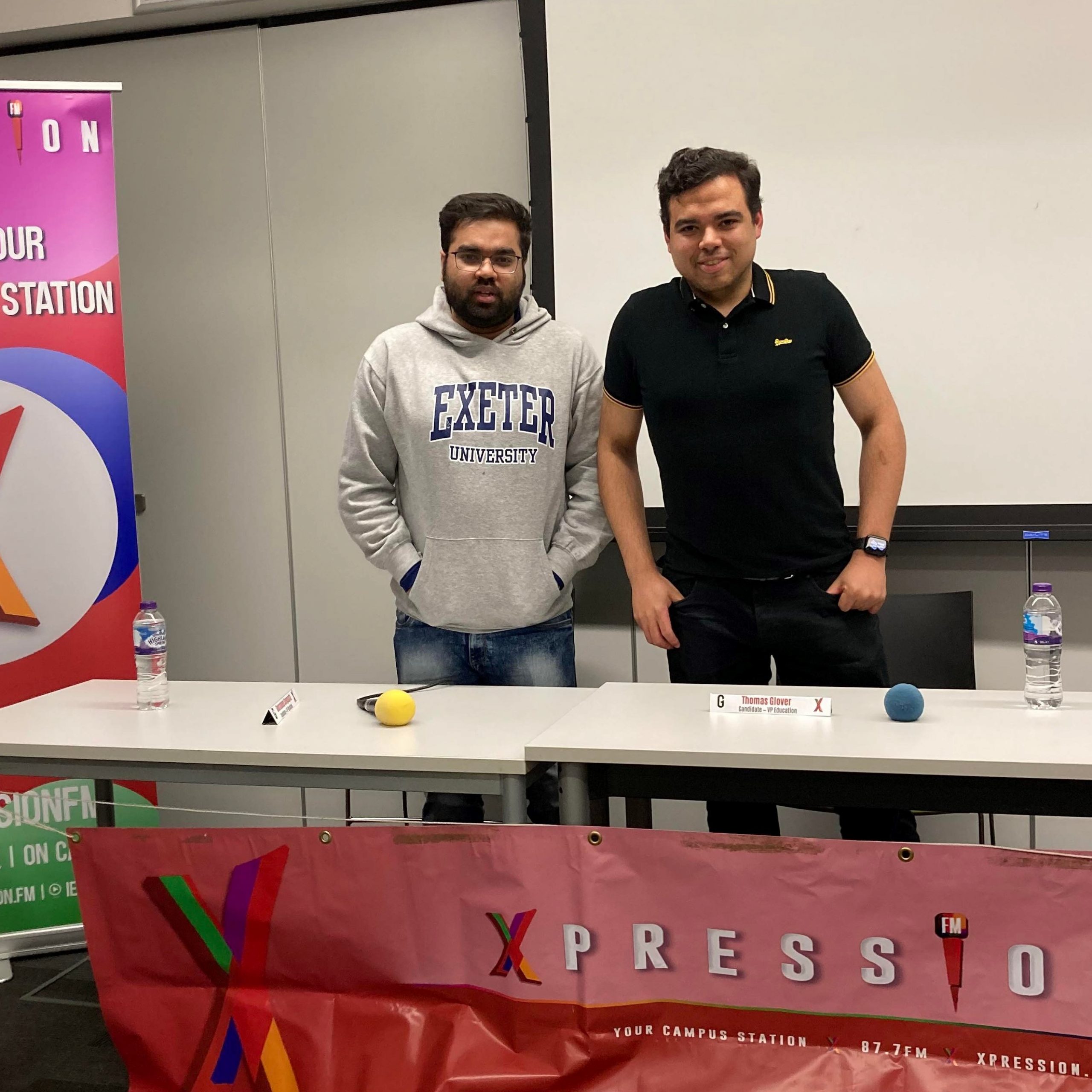Guild Elections 2022: VP Education Debate

The second Guild Election debate, this time with the VP Education candidates, took place on Thursday 10 March.
Two of the three candidates running for VP Education were present at the debate – Thomas Glover and Souradeep Sengupta. The third candidate, Jack Liversedge, could not attend the debate for medical reasons, but in a message read out by the debate’s host, he pointed listeners towards his personal statement on the website and said “I would love to be your VP for Education next year.”
The debate kicked off with the candidates in attendance going through their opening statements. Thomas introduced his aims, stating that he “wanted to run for VP Education due to my experience on a university-wide level. My campaign is focused mainly around community. I hope to be able to work across the University and to ensure that everyone gets a voice.” Souradeep then gave his initial statement, indicating that “if I get elected, I will take student feedback and try to get it implemented.”
The first questions put to the candidates by the host, Victoria Shipp, were: “What do you think the role of VP Education is, and what do you think its main aspects are?” Thomas responded by saying: “I want to work on improving the student voice academically and being able to be part of that voice academically and ensuring the student voice is heard”. Souradeep then responded by saying he will “work with students to look at the curriculum and work with timetables so that students face no difficulties. I want to make their lives easier”.
The next question of the evening was about actively consulting students in the VP Education role, and how the candidates think they can encourage student participation with the Guild. Thomas replied saying he thinks “the Guild is one of the main aspects of student life so student representation itself is important. Being able to work on value and importance ensures that students have something to work on within their own department”. Souradeep suggested that he would “encourage the maximum amount of students to be student reps”.
When asked if either of the candidates had any new ideas or initiatives that might increase student participation, Thomas replied by saying that when he was a subject chair, he worked on in-person and online sessions, doing drop-in sessions “to speak to a staff member within the module or student rep, as a space to be able to provide feedback”. Souradeep said he would also “like to run online and in-person drop-in sessions, so I can hear any difficulties students might be facing. I would encourage them to speak to their professors as well.”
The next question was concerned with the claim that students don’t feel their thoughts about in-person exams are listened to. The host asked the candidates how they would handle this issue. Thomas highlighted how we are still in the midst of the pandemic and that guidelines must still be followed. He went on to say that “if online exams happen, it needs to be for everyone not just one student.” Souradeep answered this question by indicating the importance of how “if the majority of students want online exams, they should be online. If the majority of students want in-person, then they should be in-person. It should be with the majority.”
When asked about what local and national bodies the candidates think are important to be in contact with to get the best results for students, Thomas suggested the importance of the national support from the NUS which has done campaigns like that of Students Deserve Better. Souradeep commented that he would want to help to make students’ lives easier by having support outside of the University.
Another key question asked was about students feeling neglected by the Guild and how the candidates would deal with this. Thomas stated the importance of communicating with students and that he would ensure that the University has useful information in order to find solutions to these issues. Souradeep also illustrated the importance of gaining feedback from students and then presenting this feedback to those in power from the Guild.
When the host outlined that the role would include having to help oversea governance, finance, and strategy for the Guild and then questioned whether either of the candidates had any experience in this or what they would use to fulfil this aspect of the role, Souradeep commented that he had “nothing to say to this”. He added that “we would present our ideas to the higher-ups in the University and try to convince them of this.” Thomas clarified the importance of “leadership and strengthening the Guild further and working effectively with Guild staff.” He then added that he currently works as a charity manager and that “being able to work with other trustees is one of my key focuses.”
One of the concluding questions was about Individual Learning Plans (ILPs) and how the candidates would make them more accessible and consistent for students. Souradeep was unsure about what an ILP was and stated that he needed more time to think about it. Thomas commented that he understood that this issue on ILPs needed to be mentioned to the University and that he would aim to support students who are dealing with this issue.
The final Guild Election debate with take place on Friday 11 March at 7pm with the candidates standing to be Guild President. The debate will be streamed live on XpressionFM and Exeposé will be providing live coverage over on our News Twitter.
Editor: Orla Mackinnon


